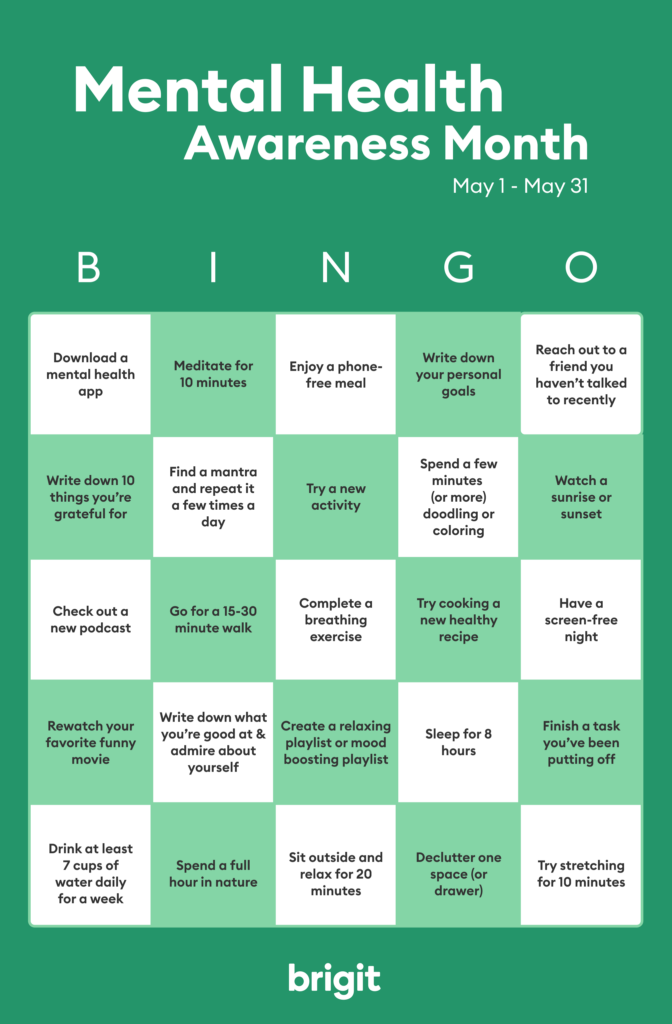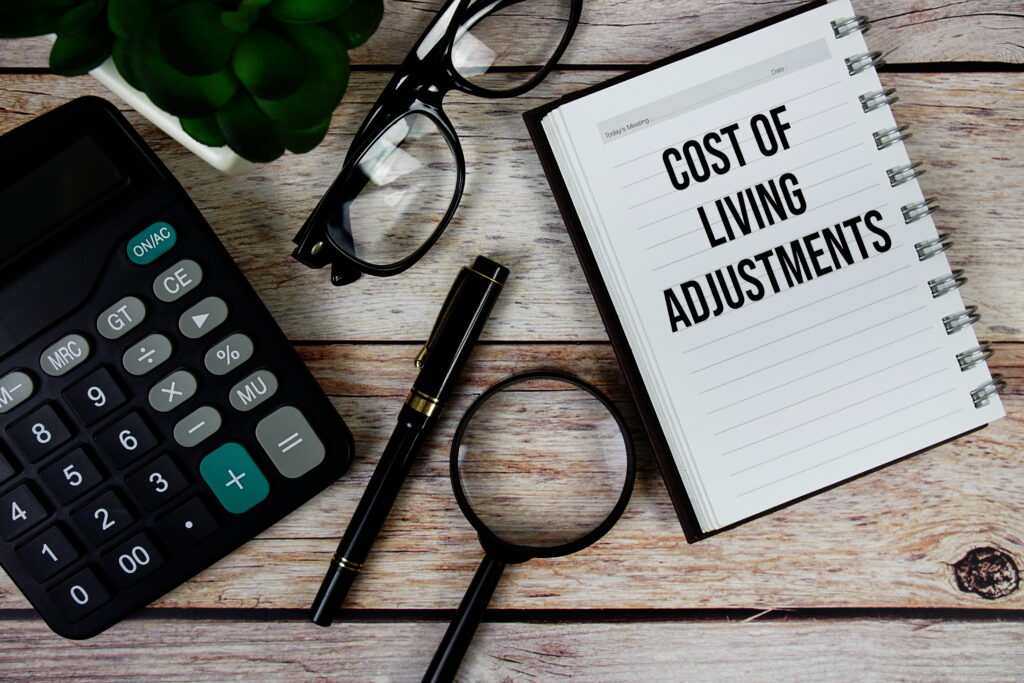Need a mental health boost? Life is busy, and it seems like often we don’t get around to taking care of our mental and emotional wellness. Here’s a checklist of things that can help you make sure you’re doing things that can help you maintain emotional, psychological, and social well-being. Here’s a complete guide to building your mental health checklist, so you cover all the important steps to staying emotionally healthy. (And in addition to the checklist, save our bingo card to your phone for a fun way to remember quick mental health-boosted activities you can do throughout the day!)
1. Check in with yourself every day
Start with integrating a daily self-check into your routine. Take a few moments each day to check in with yourself about your emotional state and how you’re feeling. Are you unusually stressed, anxious, or down? Spotting these feelings early can help you manage them before they escalate. Use simple apps on your phone or keep a journal to track your mood and thoughts. This is a useful habit that helps you identify patterns and understand any triggers that might impact your daily well-being.
2. Stay active
Physical exercise plays a critical part in maintaining mental health. It releases endorphins, which are natural mood boosters. Make sure your checklist includes at least 30 minutes of physical activity a day, whether it’s a fast-paced walk, a yoga session, or a more intense workout. The key is being consistent, so choose activities that you look forward to doing and will want to stick with.
3. Nutrition and hydration
What you eat has a big impact on your brain function and mood. Incorporating a balanced diet with lots of fruits, vegetables, and whole grains into your checklist is key. Focus on foods known to boost brain health—things that are rich in omega-3 fatty acids, antioxidants, and vitamins. Staying hydrated is also vitally important; dehydration can lead to confusion and agitation.
4. Get enough sleep
Sleep and mental health are closely related. Poor sleep can be a symptom of mental health issues, just as much as it can be a cause of them. Be sure your checklist has a set sleep schedule that allows you to get 7-9 hours of solid sleep each night. Build a bedtime routine that promotes unwinding and relaxation, like reading a book or meditating, and make your bedroom a great environment for sleep by keeping it cool, quiet, and dark.
5. Social connections
Humans are naturally social, and isolation can lead to feelings of depression and anxiety. Make it a point on your checklist to connect with friends and family regularly. It doesn’t always have to be in person; even a simple phone call or video chat can help you feel connected. Additionally, look into joining clubs or groups that match with your interests to meet new friends.
6. Stress management
Incorporate strategies into your checklist to help manage stress. These can be mindfulness exercises, meditation, deep-breathing techniques, or hobbies that you love. Identify your main sources of stress and tackle them head-on, whether it’s work-related or personal stress. Setting boundaries and being able to say no is also vital to managing stress.
7. Get professional help if you need it
Acknowledging when you need professional help is critical. If you’re consistently feeling overwhelmed, depressed, or anxious, it might be time to see a therapist. Mental health professionals can provide the tools and strategies to help you manage your mental health effectively. Add regular check-ups with a mental health professional to your checklist, just like you do for physical health.
8. Make time for mindfulness and reflection
Set aside time for reflection and mindfulness. Things like meditation, journaling, or simply spending time in nature can improve your mental clarity and your overall sense of emotional wellness. These activities help you stay grounded, and can help reduce feelings of anxiety about the past or future.
Taking care of your mental health requires ongoing awareness and dedication. You have to prioritize it, but it’s a very worthwhile thing to prioritize. It will help you feel better, think more clearly, and be healthier and more successful in your relationships as well as work and other goal-oriented pursuits.
Mental Health Bingo Card











